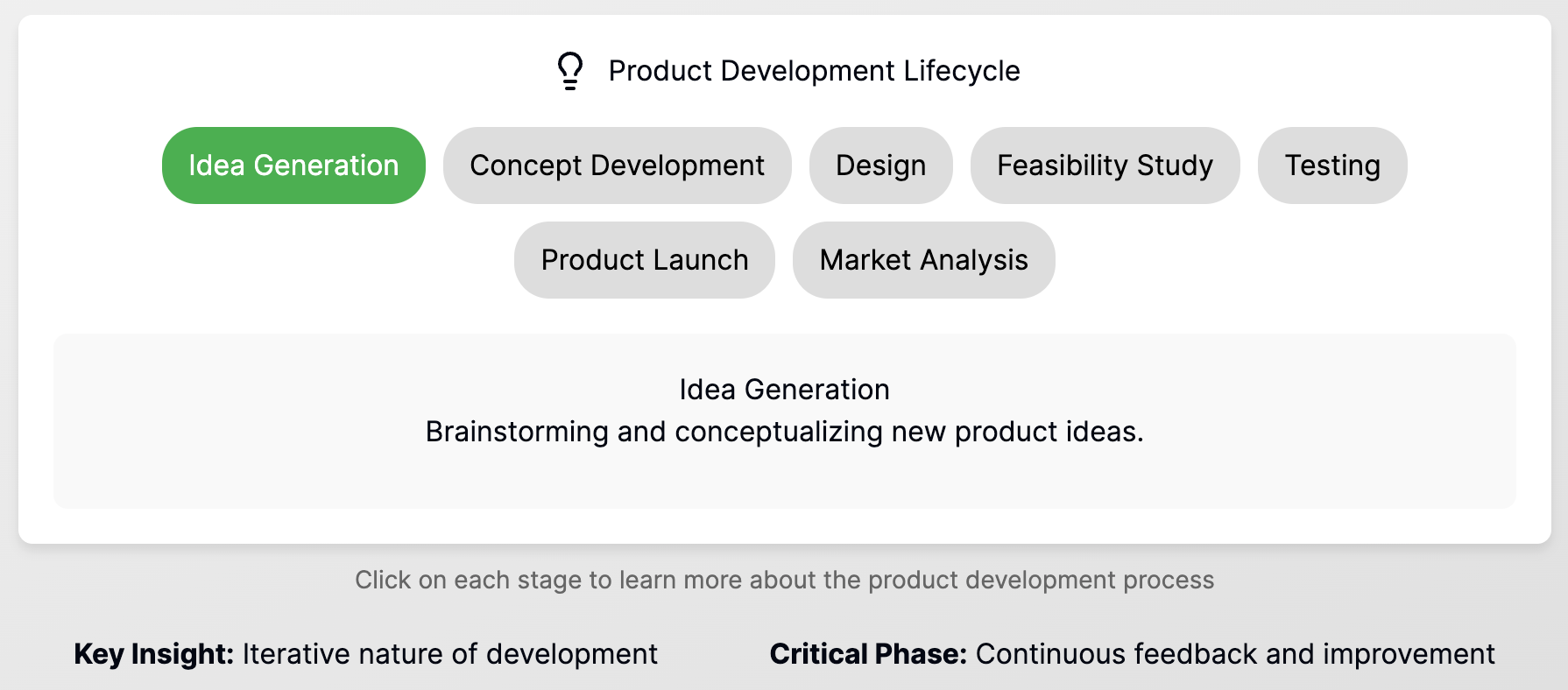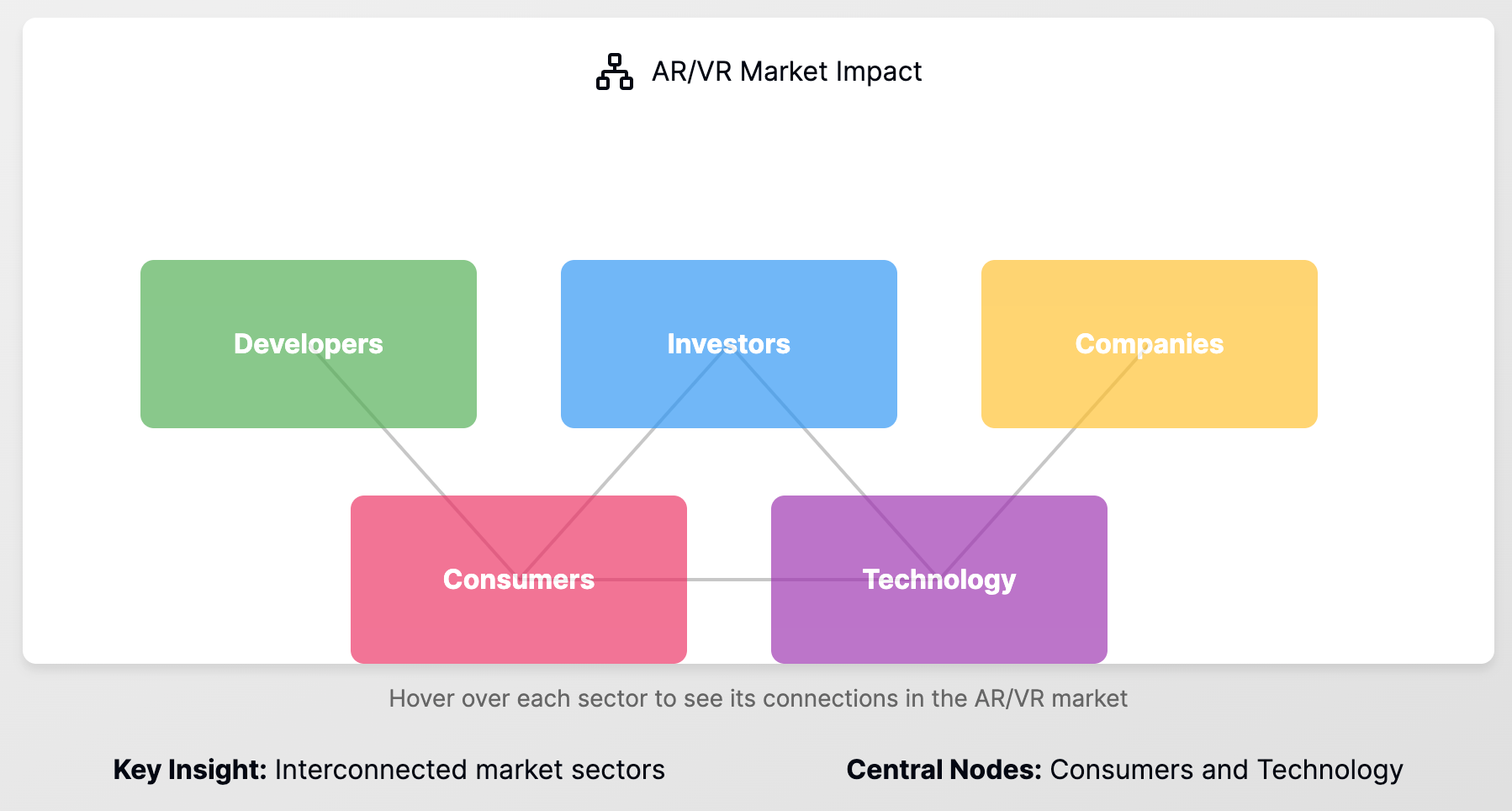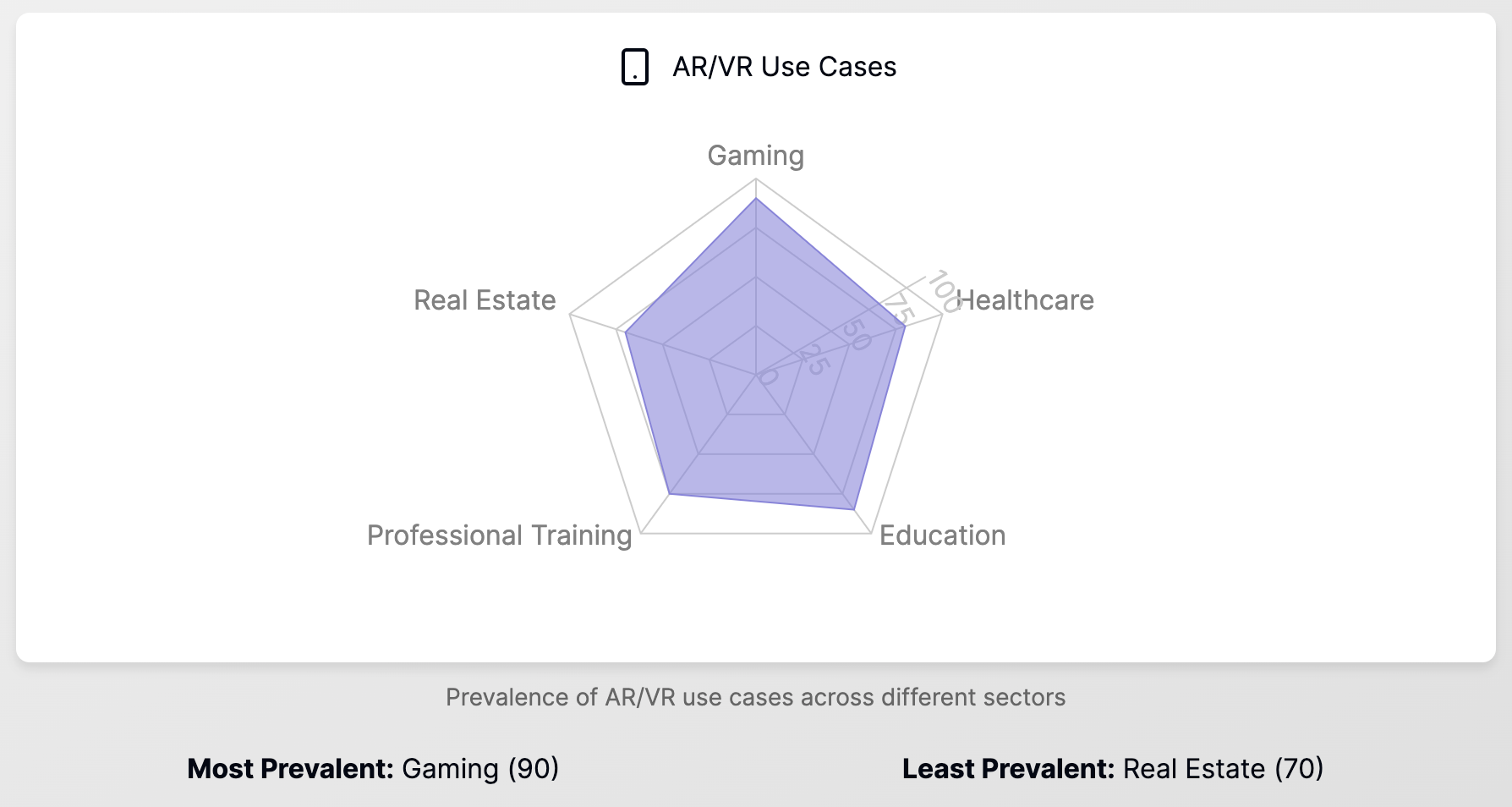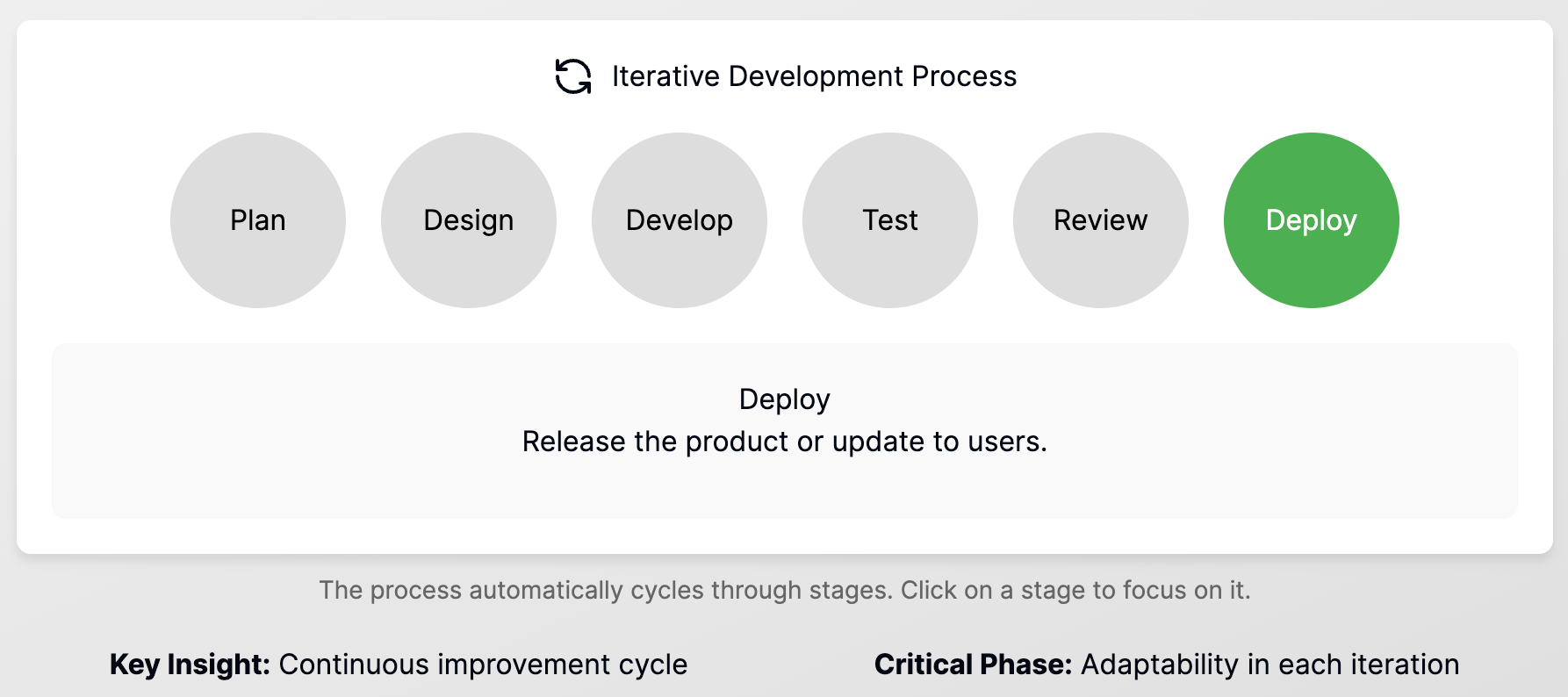In a surprising turn of events, Meta has reportedly canceled the development of its high-end mixed reality headset, codenamed "La Jolla." This decision marks a significant shift in Meta's AR/VR strategy and has sparked discussions about its potential market impact. Let's explore the details of this decision and its implications for the augmented and virtual reality landscape.
The Rise and Fall of Project La Jolla
Meta's "La Jolla" project, which began in November 2023, was an ambitious endeavor aimed at creating a premium mixed reality headset to compete directly with Apple's Vision Pro. The product's entire journey, from idea generation to potential market release, was carefully planned by Meta's product management team.

The product roadmap for La Jolla was ambitious, with key features including ultra-high-resolution micro OLED displays, advanced mixed reality capabilities, and premium build quality. Meta's development teams were tasked with creating a device that would showcase the company's technological prowess in the high-end AR/VR market. The La Jolla headset was positioned as a significant upgrade from Meta's existing Quest line, aiming to create new opportunities in the virtual world of mixed reality.
Despite the project's promise, Meta faced significant hurdles in balancing advanced features with a competitive price point. The company's product vision included keeping the cost below $1,000, which proved to be a major challenge in the development process. The primary factors contributing to the high costs included expensive micro OLED displays, premium components required to match or exceed Vision Pro capabilities, and integration of cutting-edge AR/VR technologies.
These challenges in the early stages of development led Meta to reevaluate its product development plan. The company needed to determine if it made sense to continue investing in a project that might not achieve the desired price-to-feature ratio.
Meta's Strategic Shift in AR/VR Development
With the cancellation of La Jolla, Meta appears to be pivoting its AR/VR strategy. Instead of competing directly with Apple in the ultra-premium segment, the company is now focusing on more affordable options that can reach a broader audience and potentially generate iterations of existing products.
Key aspects of this strategic shift include:
- Continued development of the Quest 4, targeted for a 2026 release
- A focus on devices priced around $500, aiming for mass-market appeal
- Prioritizing accessibility and mainstream adoption of AR/VR technology
This change in direction suggests that Meta is betting on volume rather than competing in the niche, high-end market dominated by Apple's Vision Pro. The company's product manager and implementation teams are likely working to gauge interest in more affordable AR/VR solutions.
Andrew Bosworth, Meta's Chief Technology Officer, addressed the reports of the project's cancellation in a statement on Threads. He emphasized that this decision is part of Meta's normal product development process:
"We have many prototypes in development at all times. But we don't bring all of them to production. We move forward with some, we pass on others. Decisions like this happen all the time, and stories based on chatter about one individual decision will never give the real picture."
Bosworth's response suggests that Meta continues to explore various AR/VR technologies and form factors, even as it adjusts its product lineup. This approach aligns with common product management practices, where companies generate iterations of ideas and concepts before deciding which ones to pursue further.
Impact on the AR/VR Market
The cancellation of Meta's high-end headset project has significant implications for the AR/VR market:
- Less direct competition for Apple's Vision Pro in the premium segment
- Potential consolidation of the high-end market
- Increased focus on mid-tier and entry-level AR/VR devices
For consumers, this shift could mean fewer choices in the premium AR/VR space, potentially slower price reductions for high-end devices, and more options in the mid-range and budget segments.

While Meta's decision might seem like a setback for AR/VR innovation, it could lead to more focused development on accessible AR/VR technologies, accelerated adoption of mixed reality devices by mainstream consumers, and increased competition in the mid-range market, driving innovation and affordability.
The market impact of this decision extends beyond just Meta and Apple. It affects the entire AR/VR industry, including developers, investors, and other companies involved in creating mixed reality experiences.
The Future of AR/VR Technology
Despite the cancellation of La Jolla, the future of AR/VR technology remains bright. The industry continues to evolve, with new developments and improvements happening regularly. Research into new display technologies, more efficient processors, and improved haptic feedback systems could lead to breakthroughs that make high-end AR/VR experiences more affordable in the future.
The convergence of AR/VR with other emerging technologies like artificial intelligence, 5G, and edge computing could create new possibilities for immersive experiences. This integration might help overcome some of the current limitations in AR/VR technology.
As AR/VR technology becomes more accessible, we're likely to see an expansion of use cases beyond gaming and entertainment. Industries such as healthcare, education, and professional training are increasingly adopting AR/VR solutions, which could drive further innovation and development in the field.

Product Development Insights
Meta's decision to cancel the La Jolla project offers valuable insights into the product development process for complex technologies like AR/VR headsets. It highlights the importance of market research, balancing features and price, and maintaining flexibility in product roadmaps.
The ability to adapt to changing market conditions and technological constraints is crucial. Companies need to be willing to pivot their strategies when initial plans don't pan out as expected. While pushing the boundaries of technology is important, it's equally crucial to create products that are practical and accessible to a wide range of consumers. Finding this balance is often the key to success in the tech market.
Throughout the development process, gathering and incorporating consumer feedback is essential. Companies like Meta often use various methods to gauge interest and gather insights from potential customers. Even though La Jolla didn't make it to market, the concept and early prototypes likely provided valuable data for Meta. This information can be used to inform future product development efforts.

Financial and Market Considerations
The cancellation of a high-profile project like La Jolla has significant financial implications for Meta and the broader AR/VR market. For a company like Meta, deciding to cancel a major project involves reassessing how to allocate its assets. This could mean redirecting resources to other AR/VR initiatives or even to different areas of the business.
By choosing not to pursuean expensive, high-end headset, Meta may be prioritizing liquidity and managing risk. This decision could affect how the company positions itself financially in the competitive tech market. The development process for high-end AR/VR devices involves significant costs, including research and development expenses, prototype creation and testing, supply chain setup, and marketing and distribution planning. Meta's decision to focus on more affordable devices suggests that the company sees a better return on investment in the mass market segment.
The AR/VR market is still in its early stages, with various companies vying for position. Meta's strategic shift could have ripple effects throughout the industry. The company's focus on a lower price point indicates that it believes there's significant price sensitivity in the AR/VR market. This could lead to increased competition in the mid-range segment as other companies follow suit.
As more affordable AR/VR devices enter the market, consumer expectations may shift. Users might prioritize different features or be willing to accept certain limitations in exchange for a lower price point. This change in the market dynamics could create opportunities for niche players to develop specialized AR/VR solutions for specific industries or use cases.
Implications for Investors
The cancellation of a high-profile project like La Jolla can have significant implications for investors, both institutional and professional. Investors will likely be closely watching how Meta allocates the resources that were initially earmarked for the La Jolla project, as this reallocation could provide insights into the company's future direction and priorities.
News of project cancellations can affect market sentiment, potentially impacting stock prices and investor confidence. However, if the market views the decision as a prudent move to focus on more profitable areas, it could be seen positively. For long-term investors, Meta's decision to focus on more affordable AR/VR solutions might be seen as a strategic move to capture a larger market share, potentially leading to greater profitability in the future.
Lessons for the Tech Industry
Meta's experience with the La Jolla project offers valuable lessons for other companies in the tech industry, particularly those involved in developing new and complex products. The ability to adapt to changing market conditions and technological constraints is crucial. Companies need to be willing to pivot their strategies when initial plans don't pan out as expected.
While pushing the boundaries of technology is important, it's equally crucial to create products that are practical and accessible to a wide range of consumers. Finding this balance is often the key to success in the tech market. Meta's openness about the cancellation of La Jolla, as demonstrated by Andrew Bosworth's statement, highlights the importance of transparency in product development. This approach can help maintain trust with customers, investors, and the wider tech community.
Conclusion
Meta's decision to cancel its Vision Pro competitor, Project La Jolla, marks a significant shift in the company's AR/VR strategy. While it may seem like a setback in the short term, this pivot could potentially lead to more accessible and widely adopted AR/VR technologies in the future. The market impact of this decision extends beyond just Meta and Apple, affecting the entire AR/VR ecosystem. It highlights the challenges of developing cutting-edge technology while maintaining a competitive price point, a balance that many tech companies struggle to achieve.
As the AR/VR market continues to evolve, we can expect to see further innovations, strategic shifts, and new players entering the field. The focus on more affordable solutions could accelerate the adoption of AR/VR technology, potentially bringing us closer to a future where mixed reality experiences are a part of our daily lives.
For Meta, the journey doesn't end with the cancellation of La Jolla. The company's continued investment in AR/VR, albeit with a different focus, demonstrates its commitment to shaping the future of this transformative technology. As development processes continue and new products emerge, the tech world will be watching closely to see how Meta's strategic shift plays out in the competitive and rapidly evolving AR/VR market.
Frequently Asked Questions
What is so special about La Jolla?
In the context of Meta's project, La Jolla was intended to be a high-end mixed reality headset that would compete directly with Apple's Vision Pro. It was special because it represented Meta's ambition to enter the premium AR/VR market with advanced features and capabilities.
What is Apple Vision Pro for?
Apple Vision Pro is a mixed reality headset designed for various applications, including productivity, entertainment, and communication. It blends virtual and augmented reality technologies to create immersive experiences and allow users to interact with digital content in their physical space.
What is a mixed reality headset?
A mixed reality headset is a device that combines elements of both virtual reality (VR) and augmented reality (AR). It allows users to see and interact with virtual objects in their real-world environment, creating a blend of physical and digital realities.
What is the difference between AR and mixed reality?
Augmented Reality (AR) overlays digital information on the real world, while Mixed Reality (MR) goes a step further by allowing virtual objects to interact with the real environment. MR provides a more immersive experience where digital and physical elements can coexist and interact in real-time.
What is the point of mixed reality?
Mixed reality aims to create a seamless blend of the physical and digital worlds, enabling more intuitive and immersive interactions with digital content. It has applications in various fields, including education, training, design, entertainment, and remote collaboration, offering new ways to visualize and interact with information and virtual objects in the context of the real world.




